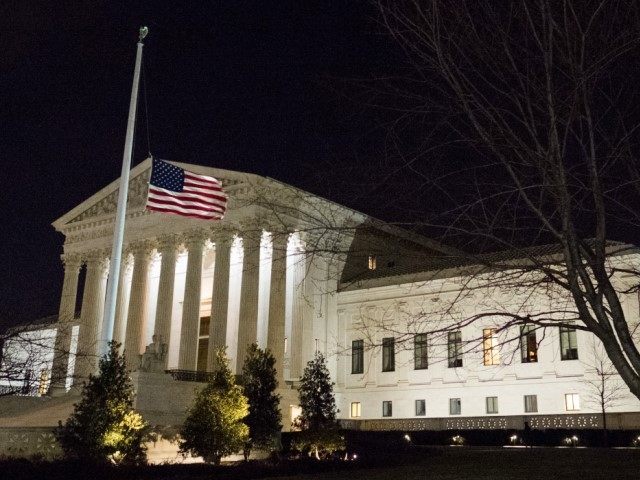News of the death of Supreme Court Justice Antonin Scalia was only minutes old when global warming alarmism advocates began cheering.
New York magazine writer Jonathan Chait notably tweeted in the wake of the news: “The most immediate political consequence of Scalia’s death: Obama’s climate plan will not be struck down.” And that was only the first of many tweets from alarmists looking to the “upside” of Justice Scalia’s death.
Only a few days earlier, Justice Scalia had voted to stop the EPA’s global warming rules (aka the Obama Clean Power Plan) pending completion of ongoing litigation. More than just a mere procedural determination, the 5-4 order was based on the fact that the states and industry suing to stop the EPA rules were likely to win on the merits of the case. But then the unexpected and unfortunate death of Justice Scalia was announced.
As expressed in Chait’s tweet, alarmists are hoping, if not assuming, that Justice Scalia’s death changes everything in their favor. Well, not so fast.
Despite Justice Scalia’s death, the Supreme Court order halting the EPA rules stands pending the ongoing litigation. The next major step in that litigation is argument before a three-judge panel of the U.S. Court of Appeals for the District of Columbia. That will not occur until June.
It will take months after oral arguments for the Court of Appeals to render a decision which could then either be appealed to the full Court of Appeals or then be reviewed by the Supreme Court. No one anticipates this process will be completed until sometime in 2017, after President Obama leaves office.
Given that Senate Republicans have committed to not confirming a replacement for Justice Scalia until after the election, the fifth vote of a likely 5-4 Supreme Court ruling on the EPA rules will be whomever the next President selects. That in all likelihood makes the November election the likely arbiter of the EPA rules.
What if the EPA case comes before the Supreme Court in 2017 without Justice Scalia’s replacement having been confirmed? In the event of a 4-4 tie at the Supreme Court, the decision of the Court of Appeals would stand. What is that decision likely to be?
All bets are off on that. History has shown that the D.C. Court of Appeals tends to support the government as it tends to be stacked with Democrat appointees. Worse, recent history has also shown that Republican appointees are toss-ups when it comes to EPA cases.
Aside from the law and facts on the side of the state and industry plaintiffs against the EPA, the plaintiffs had the advantage of knowing they had a preliminary 5-4 Supreme Court ruling on the merits. So the Court of Appeals judges would essentially have been ruling with Justice Scalia and the other four justices looking over their shoulder. But now that Justice Scalia is dead, that pressure has been at least somewhat relieved.
So is the future rosier for Obama global warming rules following Scalia’s death? Not really. In the end, the fate of the rules lies in the hands of the next president. The EPA is not required by any law to regulate carbon dioxide emissions. In the 2007 case of Massachusetts v. EPA, the Supreme Court ruled that EPA “may” not “must” regulate greenhouse gases from automobiles. The extension of this optional authority to power plants is discretionary – and the next president will have the full discretion to roll back or change them.
So it’s the election that is all important for the future of the rules.
Maintaining the fiction that Scalia’s death helps secure the rules’ future is a myth that alarmists must propagate to keep alive their precious Paris climate agreement. The future of that agreement, scheduled to be open for signing on Earth Day at the United Nations, is now murkier because of the Supreme Court’s overturning of the EPA rules.
China and India, for example, have cited the Court’s decision as a wavering in the U.S. commitment to cutting CO2 emissions – and both countries would love to take the nearest exit from the Paris agreement if possible. The halting of the EPA rules is the core of President Obama’s commitment and if the U.S. doesn’t live up to its commitment, why should anyone else?
Steve Milloy publishes JunkScience.com (@JunkScience)

COMMENTS
Please let us know if you're having issues with commenting.